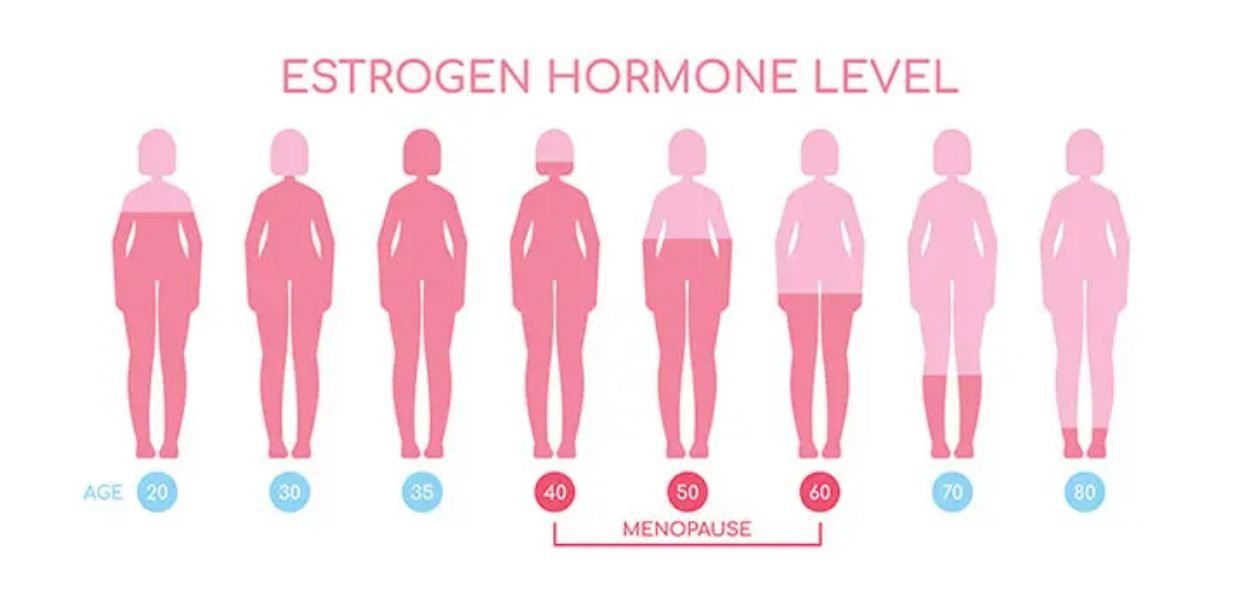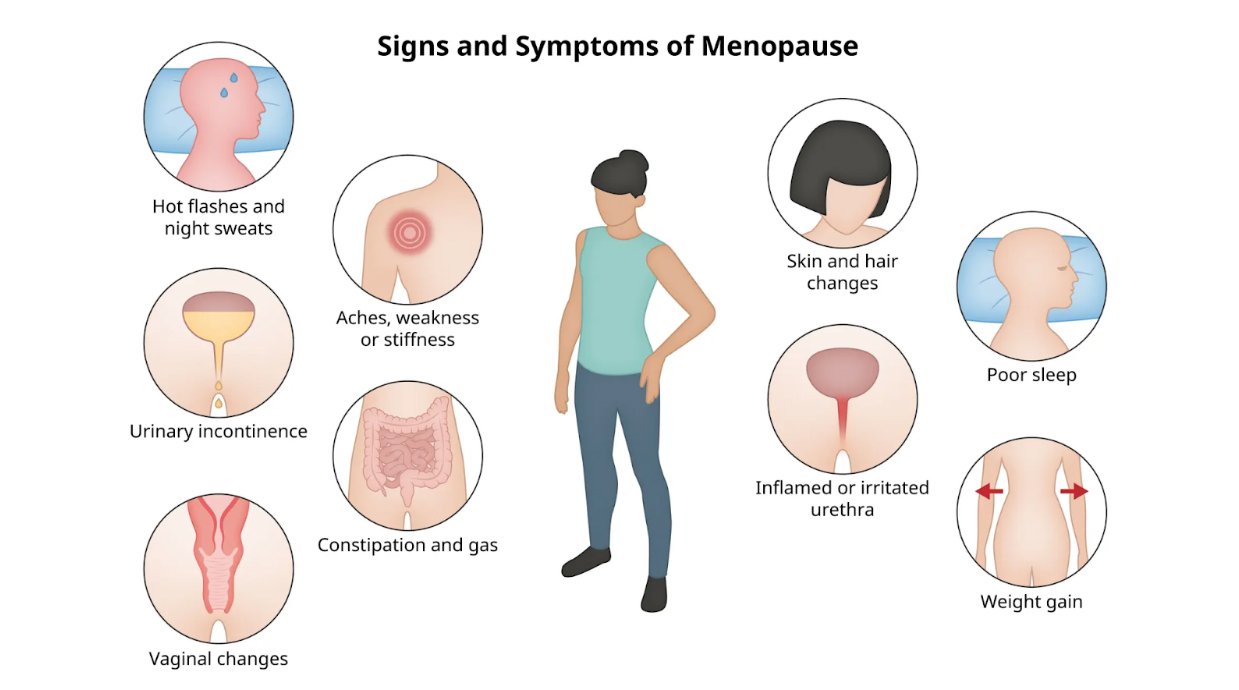
Menopause is like puberty’s older, meaner sister. Filled with hot flashes, mood swings and unavoidable weight gain – it’s not surprising that women dread this phase in their lives! However, menopause does not have to be the end of the road. With the right support, you can find a way to embrace and get through these hormonal fluctuations – with your health (and sanity!) intact! Let’s get started.
Menopause is a natural biological process marking the end of a woman’s reproductive years. It is officially defined as occurring 12 months after a woman’s last menstrual period, indicating that the ovaries have ceased functioning and there is a significant drop in the hormones estrogen and progesterone.

Menopause symptoms can vary widely among women and can significantly impact the quality of life. They include:

Regular medical check-ups and screenings are vital for detecting and managing potential health issues early. Here are some recommended tests and their frequency:
Healthcare providers can offer various treatments to manage menopause symptoms effectively:
Menopause is a natural part of life that comes with challenges. We know it’s tough, but with the proper support and a positive outlook, we know you can do it!
Contact the experts at Renew Healthcare to discuss your individual needs and receive personalised care and guidance throughout this journey.
Understanding PCOS and Its Impact on Fertility For many women, a diagnosis of PCOS (Polycystic Ovarian Syndrome) feels like a...
Angelina Jolie Did It, Should You? Weighing the Pros and Cons of BRCA Testing Introduction Angelina Jolie's decision to undergo...
As women, it's easy to dismiss minor discomforts as part of the norm. But what if those whispers were actually...
Common Myths about Preconception Counselling Preconception counselling is a type of healthcare service that helps couples prepare for a healthy...
Revitalize Your Intimate Wellness with Femilift Non-Surgical, Painless, and Effective Solution for Vaginal Rejuvenation Intimate wellness is an essential aspect...
